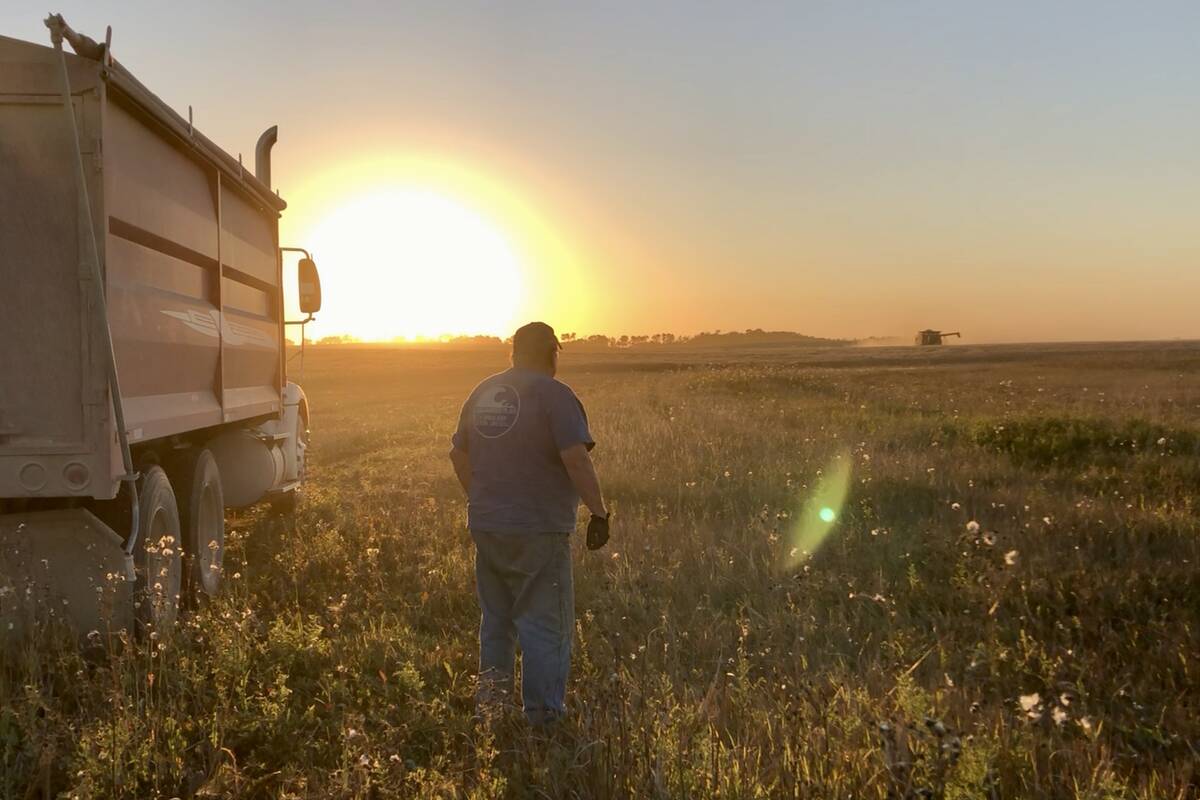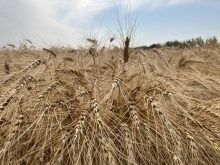Canola markets may be facing uncertainty, but in terms of innovation, it’s exciting times for the oilseed in Manitoba.
Researchers are working to expand canola’s scope outside of its traditional role as an oil source and find new markets for it byproducts. Those formerly wasted products are being explored for plant-based protein, new forms of animal feed and even biodegradable packaging.
“In the past, canola innovation (was) primarily focused on the oil, which is the main income source … but in the past few years, I think there’s been a big shift using commercially available solvent-extracted canola meal, at least at the research stage,” Nandika Bandara, Canada Research Chair in Food Protein and Byproducts at the University of Manitoba, said during a recent canola innovation webinar hosted by Manitoba Agriculture.
Read Also

VIDEO: Bittersweet harvest for this family farmhand
Bruce Burnett helps his brother harvest wheat and canola for the last time on the family farm in Manitoba where they both grew up.
In the past few month, the U of M has made headlines for its work into solvent-free canola crushing — an innovation that could open the door for food applications of canola meal. Nutrients from the meal have also been flagged for potential use in fermentation and food processing in academic circles in Saskatchewan.
The new focus on canola meal comes alongside a surge in global demand for plant-based protein. In that space, canola protein may have a unique advantage, webinar listeners heard. It has a neutral flavour profile and functional properties that can replace eggs in certain applications.
Kevin Segall, director of quality assurance and innovation at the Burcon NutraScience Corp., which produces purified plant protein ingredients, said its canola protein isolate product, Puratein C, contains more than 90 per cent protein on a dry basis.
“It’s rich in sulfur-containing amino acids, which makes it complementary to pulses like pea protein, which are deficient or a little bit deficient in sulfur-containing amino acids,” Segall said during the same webinar.
There’s opportunity to blend the two plant-based protein types, he added.
Burcon currently holds 37 patents specific to canola processing and applications, part of its 91 total issued patents. The company says its canola protein can be used in beverages, dairy alternatives, protein bars and various food applications, where its low water-binding properties help reduce product hardening.
Burcon was one of the names behind the now-defunct protein company Merit Functional Foods, which went into receivership in 2023.
Earlier this year, Burcon announced it would operate a new facility in Illinois, which was acquired by its alliance partner RE ProMan LLC.
Protein extraction represents just one avenue for innovation. Canola-based packaging developed by Bandara’s team show remarkable improvements in barrier properties, important for food packaging applications.
Bandara’s team is also breaking down canola meal into its component parts, including cellulose, hemicellulose and lignin, for use in wood adhesives and bio-based plastics.
The approach has already shown commercial promise, with the French company Avril successfully commercializing canola protein-based wood adhesives, webinar attendees heard.
Richardson International, one of Canada’s largest agribusinesses, processes more than 3.2 million tonnes of canola seed annually through its crushing facilities in Saskatchewan and Alberta, and Steven Robbins, the company’s director of product development innovation, said there have been innovations on the oil side.
Those include high oleic canola varieties that offer improved oil stability and longer shelf life. They’re typically lower yielding than conventional canola, but “in recent years, there’s been more varieties of these high oleic seeds come out, and they’re closing the gap between high oleic seeds and the conventional varieties,” Robbins said.
Meal applications are also gaining attention, he added.
Bandara’s team recently received $3.2 million from the Natural Sciences and Engineering Research Council’s Sustainable Agriculture Research Initiative to work on canola meal applications, including cellular agriculture, packaging and nano-delivery systems.
On the fermentation side, where canola meal serves as a substrate for producing fungal proteins, several start-up companies are exploring the concept, particularly in Calgary.
However, the industry faces challenges in communicating these innovations to consumers, webinar attendees heard, particularly amid social media campaigns targeting seed oils.
“There’s been lots of negativity towards seed oils, and a good number of the concerns around that aren’t necessarily founded,” Robbins said.
“Making sure that you get the right message out there in the right way that’s meaningful to people and making sure that the science is what should really prevail at the end of the day.”


















